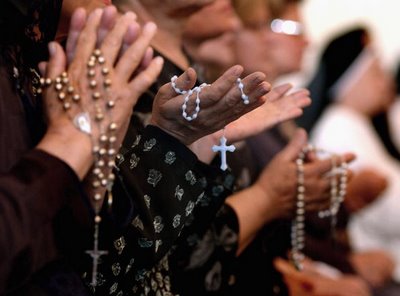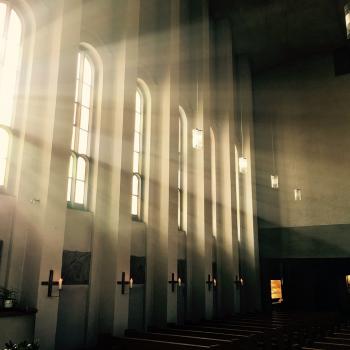That’s part of what Pope Francis had to say the other day on the subject of clericalism. I posted his comments on deacons two days ago. Now, from that same talk, there’s more:
The Church needs the laity and they should not be “clericalised”, Francis said in this morning’s audience with Italian Catholic radio and television network Corallo.
“Who’s more important? The Pope or that little old lady who recites the rosary every day?” Francis asked this question to representatives of local television channels, admitting that he himself did not know the answer.
“The body of Christ is the harmony of the different,” the Pope explained condemning the phenomenon of “clericalism” which afflicts many lay people, to the point that it can be defined as an “added evil”. “Some bishops and priests are drawn by the temptation to clericalise the laity, but there are also many lay people who get down on their knees and ask to be clericalised: it is a two-way sin.” But according to Francis, “a lay person has the strength that comes from baptism and his lay vocation is not negotiable.”
The Pope criticised the tendency some prelates have of pushing lay people who do a lot of great work in their parishes – they may be great organisers, for example – to be come deacons. Another thing that often happens, Francis said in his off-the-cuff address to representatives of Italian diocesan broadcasters, is that “when there is a lay person who does a good job and is committed, their parish priest goes to the local bishop – and this happened to me in Buenos Aires – and says: “Why don’t we make him a deacon?” This is a mistake: if we have a good lay person, let him carry on being just that,” the Pope stressed.
“The way I see it, clericalism prevents lay people from growing,” the Pope added. And this “is a two-way temptation because clericalism would not exist if there weren’t any lay people who wanted to be clericalised.”












